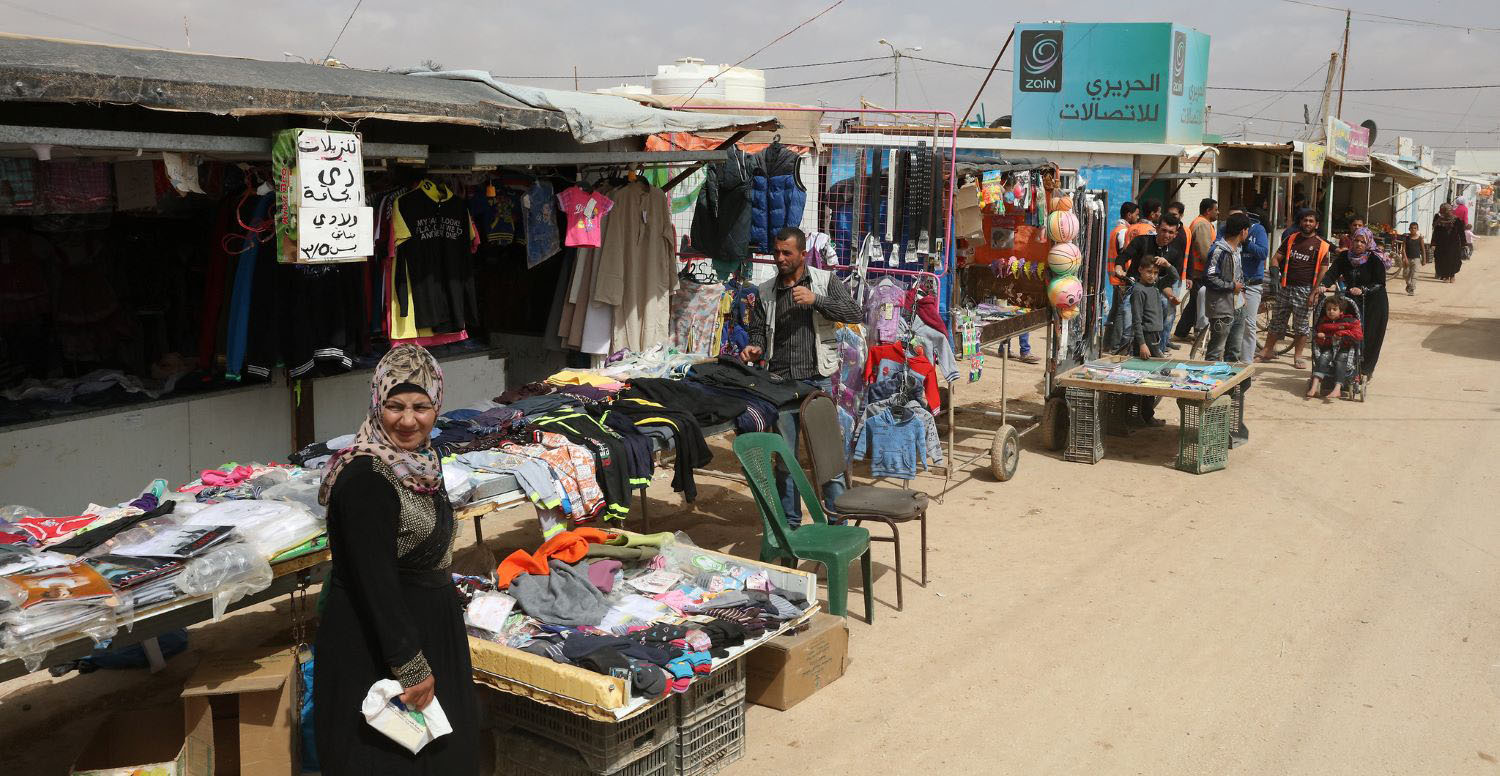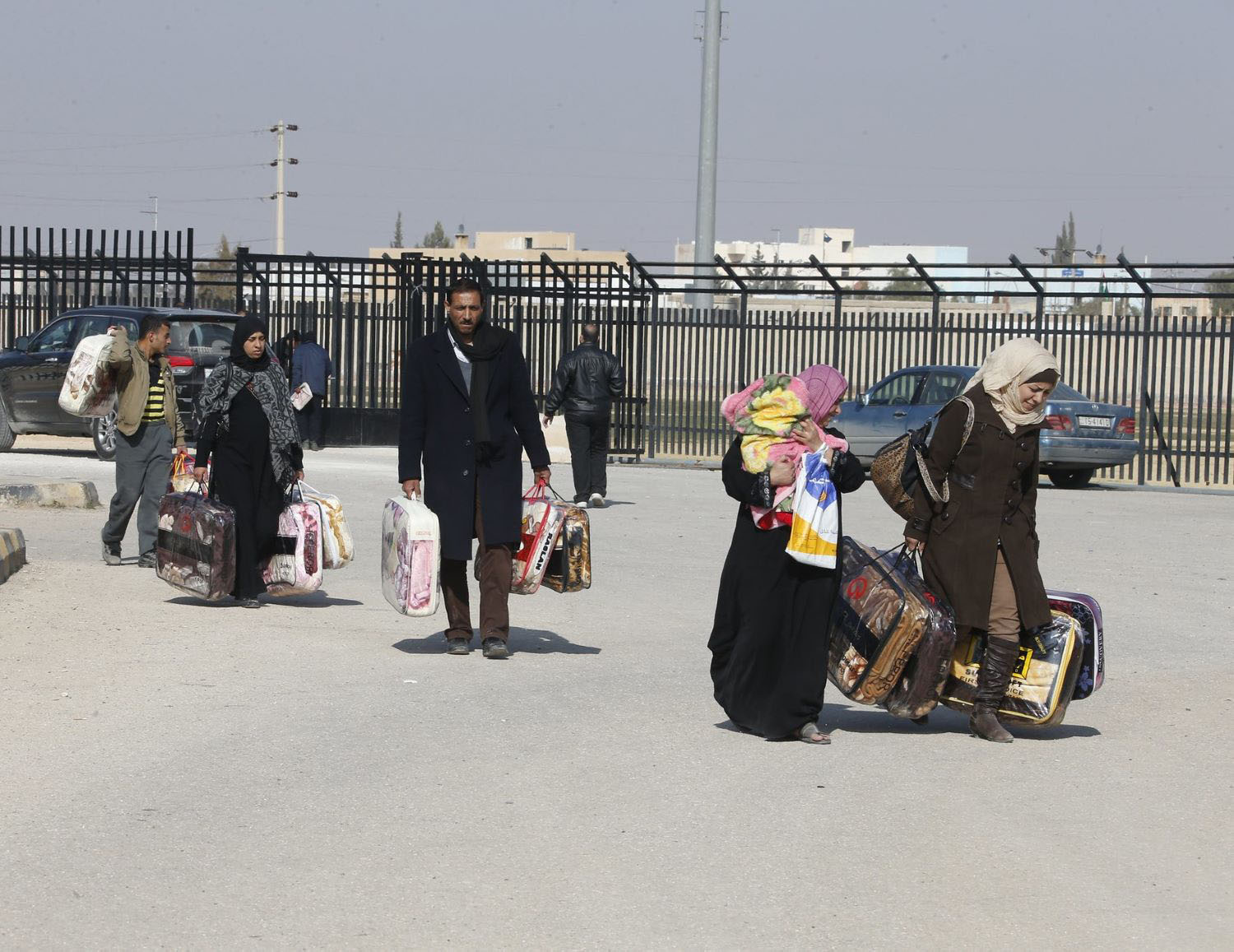This post first appeared as an article in Foreign Affairs.
Nations frequently help migrants fleeing crisis. They help out of generosity—generosity that quickly wears thin. What would they do if they acted instead from stark self-interest? Consider András Gróf, a refugee who arrived illegally in Austria after crossing the Hungarian border with a smuggler and then running through a swampy field under cover of darkness. He came without his family, without a college degree, without assets beyond 20 dollars. Back home, he had watched soldiers arrive, first to rape his mother, later to conscript young men like him. So András fled for the same reason that so many others leave the Middle East and Africa; whether or not there was an imminent threat to his life, the future in his country looked hellish.
András didn’t arrive in Austria in 2015. He fled Hungary with 200,000 other refugees in 1956. But the global response to that earlier wave of (many non-Christian, mostly unskilled) refugees pouring into Western Europe shows a way forward for the international community today.
In an act of apparent generosity, 37 countries—from Venezuela to New Zealand—came together to resettle almost all of the refugees that resulted from the Hungarian Revolution of 1956. András went to the United States. Ten years later, under the new name of Andy Grove, he became a co-creator of Intel Corporation. Later Time magazine’s Person of the Year as Intel’s path-breaking CEO, he helped create an American industry of immeasurable economic and strategic importance. Other Hungarians in the same wave, who likewise arrived as unaccomplished young men, became artists (the great cinematographer László Kóvacs) and captains of industry (Steve Házy). More than 40,000 others became less-visible colleagues, neighbors, and spouses of Americans, strengthening and enriching the country vastly more than the assistance they got.
Grove’s story reveals some larger truths. Recent research overturns the standard narrative: that addressing migration crises mainly means curtailing the conflict and poverty that “push” migrants away from home, and slashing the excessive generosity that “pull” them into other countries. Instead, pragmatic and self-interested policymakers should consider that they often waste resources when trying to reduce push factors, and they can spark an inhumane and inefficient race to the bottom by acting individually to reduce pull factors. Through broad international cooperation to get people out of camps and into the labor force, though, they can transform refugees from a burden into an investment.
Waste and Worse
Politicians indulge in remarkable hubris when they speak of fixing the root causes of migration crises. Other countries can do little in the short run to end many crises once they are underway. The root causes of the Hungarian upheaval lasted a generation. Military intervention by the West would likely have led to chaos and much greater human flight. Today’s Middle East is no different. In a review of the entire history of refugee movements, the great political scientist Myron Weiner concluded that outside interventions can exacerbate and rarely halt mass departures from zones of conflict, particularly revolutions.
The lesson extends beyond sudden crises. Successful development assistance will typically increase emigration from low-income countries in the medium and long term. Officials commonly claim the opposite: that assisting economic development in poor countries, such as Yemen and Ethiopia, will reduce migration pressure from there in years to come. But research by one of us (Clemens) finds exactly the reverse pattern. Emigrants leave middle-income countries, such as Algeria and Albania, at about triple the rate that they leave the poorest countries. With greater earnings, they acquire the means, education, and contacts to depart. Only when countries surpass middle-income status, with further increases in prosperity at home, does migration pressure typically start to lessen.
What each rich country can do is alter what pulls people to that country specifically, once they have decided to flee their own land. To be sure, donor-countries can sometimes affect push factors to some degree. They can reduce forced migration after natural disasters through humanitarian aid inside the origin country. And for those displaced by conflict, donors can provide emergency assistance to nearby countries, in today’s case, Lebanon and Jordan, which are taking in the majority of migrants from Syria. Economists Ryan Bubb, Michael Kremer, and David Levine have proposed that rich countries could reduce onward flows by compensating third countries—elsewhere in the region or even far away—for the upfront costs of permanently resettling and integrating them. But in many crises, assistance in the original country of origin largely cannot deter departure.
A Race to the Bottom
What each rich country can do is alter what pulls people to that country specifically, once they have decided to flee their own land. Germany has shown willingness to consider large numbers of asylum applications from Syria this year, possibly attracting more of those already in flight. Conversely, countries can deter entry with draconian physical barriers and tight rationing of asylum. Tony Abbott’s Australia reduced unauthorized seaborne arrivals from about 20,000 in 2013 to almost zero in 2014, by instructing patrol ships to turn back migrant boats even if they appeared at risk of sinking.
These policies can effectively shunt migrants and asylum-seekers from one destination to another. But they create the pernicious incentive for other destination countries to do the same. If Slovakia and Hungary can divert fleeing Syrians to Germany, Slovakians and Hungarians can still free ride on the benefits of Germany’s assistance: all share in the relief of watching fewer migrant deaths. But if numerous other countries follow suit, the stress on Germany can surge. This raises pressure for Germany to likewise try to divert migrants elsewhere.
Such a race-to-the-bottom does not deter desperate people from leaving places where hope has succumbed to violence and destitution. In surveys conducted by economist Linguère Mously Mbaye, half of irregular migrants from Senegal said that they would be undeterred by a 25 percent chance of death on their way to Europe. So long as Europe is prosperous and free, the region as a whole will “pull” desperate people to its shores in times of crisis, despite roughly 20,000 deaths in the Mediterranean over the past decade.
The obvious solution is a cooperative mechanism to share responsibility for assistance.
Existing instruments of cooperation are terribly inadequate. The United Nations 1951 Convention Relating to the Status of Refugees enshrines the principle of “non-refoulement”—that people cannot be forcibly repatriated into persecution. But its obligations are national obligations, for the specific country in which a refugee arrives and seeks asylum. It only strengthens the incentives for each signatory to free-ride, physically diverting asylum seekers to transit countries and raising the standards of proof to grant asylum.
Asylum seekers and other crisis migrants can be apportioned by some more rational rule—rather than leaving cash-strapped southern Europe to cope with the crisis alone. This is the textbook solution to free-riding, and all participants can benefit. Coordination can serve each state’s self-interest.
The current proposal for refugee quotas voted by the EU on September 22 is a step in this direction, but it is much too modest. It accepts the notion that this is a European problem rather than a global one. This has two consequences. First, the plan only addresses the needs of 120,000 refugees, although 400,000 already require resettlement from Syria alone. Second, it leaves refugee camps in the Middle East drastically underfunded, which is likely to produce more forced displacement next year. A broader global solution is needed to cope with the full scale of this crisis.
The Payoff
The 1956 agreement that brought Andy Grove to America was built on this principle of cooperation for long-term self-interest. Austria was swamped with a flood of desperate Hungarians amounting to two percent of Hungary’s population. By accepting a refugee influx equivalent to just 0.02 percent of the American population, the United States absorbed almost a quarter of the total flow out of Hungary. In so doing, it helped turn what could have been a burden into a benefit. It made assisting the Hungarians an investment with a positive return.
Countries struggle to absorb refugee flows when those flows are sudden and concentrated in a limited area. Their beds and other facilities are quickly swamped, and all they can do is build camps—usually hived off from the economy and life around them. This is what Lebanon and Jordan have been forced to do, with too little international assistance. Moreover, encamped people can give back little in economic terms, as the camp serving their immediate needs also isolates them from any contribution they could make.
But the problem is the encampment, not the refugees themselves. Indefinite camp life could have wasted Grove’s talents; integration unleashed them. Refugees that can integrate and work generally perform well. Turkey’s recent efforts to integrate Syrian arrivals have caused them to have a net positive effect on Turkish workers’ wages, as economists Ximena del Carpio and Mathis Wagner have shown. Likewise refugees to the United States, after several years to get on their feet, economically outperform non-refugee migrants. Indeed, refugees in this country earn 20 percent more than other immigrants, work more hours, and speak better English, as economist Kalena Cortes has shown. They benefited the economy rather than burdening it.
Refugees to Europe likewise benefit the countries they go to, in the medium and long term. From 1994 to 2008, Denmark responded to successive international crises—in Yugoslavia and Somalia, and later in Iraq and Afghanistan—by admitting over 80,000 refugees, tripling the share of its population born outside the EU. Drawing on social security records covering all Danish workers, economists Mette Foged and Giovanni Peri have found that refugees raised the wages, employment, and occupational mobility of low-skill Danes. They did this by pushing Danes into more complex tasks and jobs, complementing many refugees’ more basic skills.
People who flee crises are seeds, scattered by a storm. These benefits are not automatic. They arise when migrant flows to any particular country are moderate. In major crises, this means that a coordinated group work to spread out the migrants and then integrate them. The United Nations High Commission for Refugees (UNHCR) estimates that the cost to host a Syrian refugee at Zaatari camp in Jordan can exceed $10,000 after a few years, without foreseeable economic benefits to UNHCR’s donors. But Germany reaps tens to hundreds of thousands of dollars in lifetime added-value from each Syrian that is successfully integrated into its labor force, an incredible bargain for the one-off $14,000 per person resettlement cost. These benefits depend, however, on other countries’ cooperation with Germany to mitigate the shock to the German system. And those other countries that cooperate can reap the same, positive long-term returns.
Seeds, Not Swarms
We will make better policy when we think more pragmatically and less fearfully about what a migration crisis is. To many newspapers, migrants fleeing violence are a “flood,” to extremists, they are an “invasion.” To the British Prime Minister—in a comment he later withdrew—they are a “swarm.”
History and reflection suggest a rather better metaphor: People who flee crises are seeds, scattered by a storm. When too many seeds are stuffed into one farm’s soil, few germinate and everyone loses. If farmers fear this outcome enough, those fears can become self-fulfilling. As each farmer pushes the seeds downhill onto someone else’s land, they pile up and become a burden. Alternatively, farmers can share the seeds and all reap a rich harvest.
These benefits are not immediate or automatic. But neither are they hypothetical. The world turned 200,000 desperate Hungarians into a gift. But only the world, not a country or two fulfilling its treaty obligations, could have done that: it took 37 nations working together. A global agreement with binding but equitable quotas could likewise resolve today’s crisis—and beyond that, turn it from an act of generosity into a historic investment with worldwide payoff.
Disclaimer
CGD blog posts reflect the views of the authors, drawing on prior research and experience in their areas of expertise. CGD is a nonpartisan, independent organization and does not take institutional positions.





